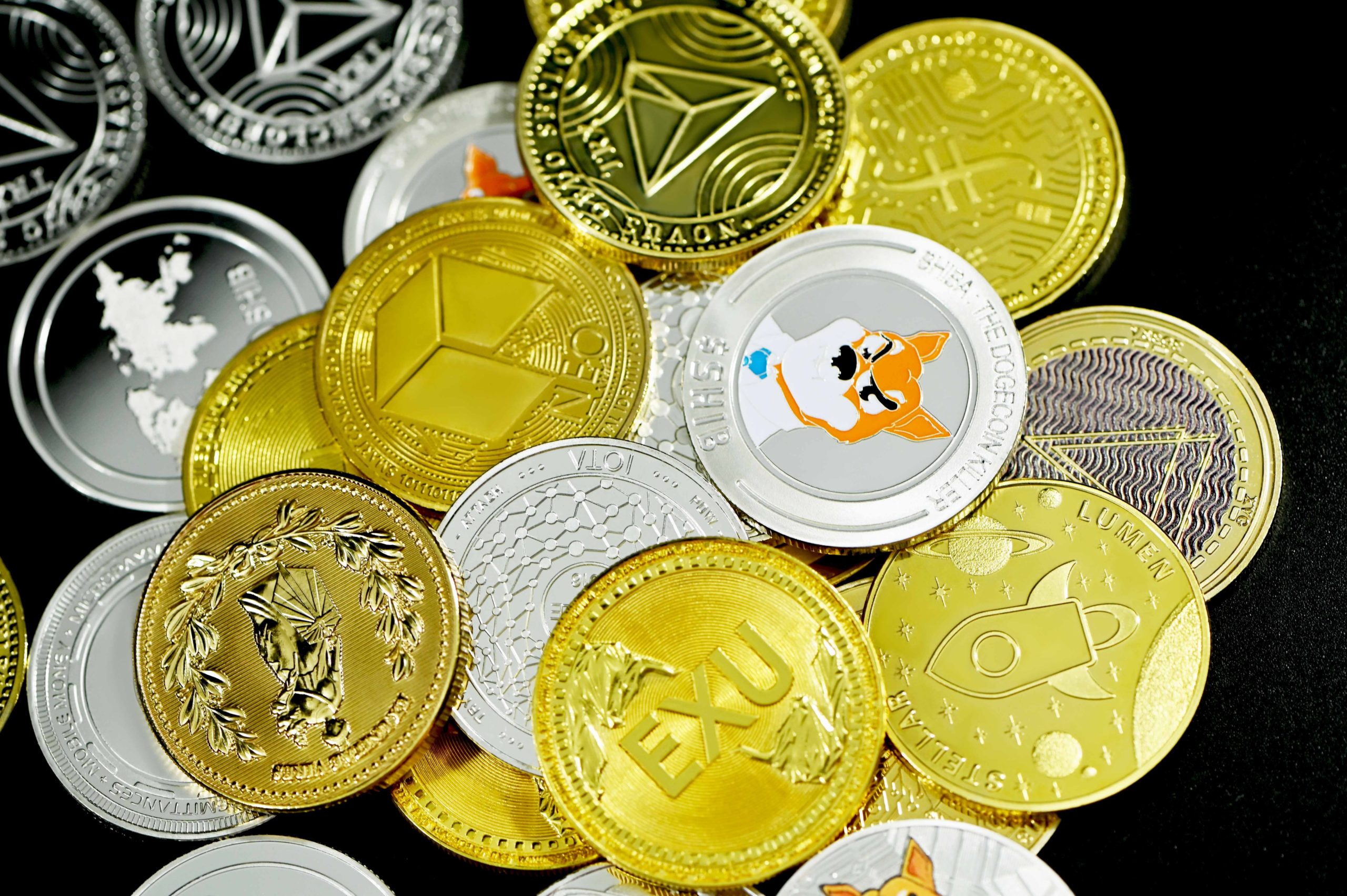Imagine a world: Everything is digital. No longer do you have to deal with bank tellers or ATM machines. Every transfer is done through your telephone. Everything you order is through the internet. Everything arrives swiftly at your front door. It’s easy. It’s convenient. Much like a Fair Go casino bonus, but it’s all under the control of centralized power, who work suspiciously close with the government.
In this society, one slip-up means that the government / bank freezes your account. At best, this is temporary. At worst, your account gets deleted entirely. While your scramble to figure out what’s going on, your debts build. Late fees begin to stack up. The bank refuses to answer your questions until, out of the blue, your bank announces that your account is closed and your money is mailed to you as a check.
This society is not hypothetical. It is nearly upon us all and, in part, already exists. The story above is not one I made up but a true retelling of the story of Laura Towler.
Laura’s Deplatforming
You probably haven’t heard of Laura Towler. To fill you in, she’s one of the founders of an organization known as Patriotic Alternative in the United Kingdom. The organization seeks to return “Britain to the British”, as it were. Their platform includes repealing Hate Speech laws, regulating porn to only be sold in licensed stores, and offers financial incentives to immigrants to return to their ancestral homelands to avoid, er, “foreign influence”.
The direct quote is, “Demographic trends forecast that the indigenous people of the UK will be a minority by 2060. To counter this trend, those of immigrant descent who have obtained British passports will be offered generous financial incentives in order to return to their ancestral homelands. This process will be carried out in a way that is mutually beneficial to both the British people and returnees.
“The UK should be governed by the British people for the benefit of the British people. Never should a foreign power be allowed to unduly influence the way the British state conducts its affairs. Equally, no immigrant-descended person should ever be allowed to make decisions regarding the ethnic composition of the UK.”
Now, I make no judgments as to this person or this organization, for that’s outside the scope of this article. The bottom line is that this person holds some staunch political beliefs but never committed a crime or was ever under investigation, as far as I’m aware. She simply holds extremely non- politically correct beliefs. Regardless, her bank decided to close her account after freezing it for nearly a month without explanation.
Her story is far from being unique.
The Canadian Freedom Convoy
But that’s far from all. In Canada, thousands of people are participating in the Canadian Freedom Convoy that’s parked itself in Ottowa. Their demands are simple: Enough is enough. It’s time for all these insane covid restrictions to be over and the mandates to end. Oh, and Trudeau should ideally step down on account of being a tyrant, a hypocrite, and an embarrassment.
To suppress these protesters, Trudeau’s administration tried every dirty trick in the book. They’ve sent in police to arrest and harass people. They’ve confiscated fuel from trucks. The courts have put orders down restricting honking. They’ve called the protesters every left-wing buzzword they could think of. Racist, homophobic, anti-vax, white supremacist, etc.
One of the most terrifying things they did was halt the transfer of donation money to the protesters, which included, but wasn’t limited to, freezing bank accounts. A single mother named Brianne had her account frozen for a fifty dollar donation to the convoy. A mere fifty dollars, to a pro-freedom protest! Her donation had been made before the government had announced it was illegal(!) to support these protesters too.
The fact that the Canadian government feels completely within its right to do this to law-abiding citizens is horrendous. The fact that the banks complied with these orders only damns them too. Banks across the globe have worked together in unified acts of de-platforming people with controversial political opinions, such as Laura Loomer, Alex Jones, Tommy Robinson, and even President Donald Trump.
Okay, so you might be thinking that those are “extremists”. Besides, the banks are private institutions; shouldn’t they be allowed to decide who they can or cannot serve? Well, that depends. Since this is blatant discrimination against people for their political beliefs (which is clearly protected under the first amendment), would you agree that the various businesses that these de-platformed people run can decide who they can and cannot serve? Say, if they’re Christian and make wedding cakes, can they deny service to a gay customer?
Now, I don’t agree with that position. However, this is an all or nothing kind of deal. If discrimination against race, sexuality, gender, etc, is not allowed, discrimination against political beliefs shouldn’t be allowed either. As I said before, none of the people I’ve mentioned so far ever committed a crime, and yet the banks decided to close on them anyway.
And just to point out precisely where these banks stand, guess who still has accounts open? The late dead pedo Jeffery Epstein and convinced child trafficker Ghislaine Maxwell. They still have their bank accounts, but if you made a fifty dollar donation to a group of truckers honking for freedom? No more money for you, good sir.
The Drive to Digitize
This scenario is, I think, an inevitable consequence of two issues: First, the centralization of power within the banks and the government. Second, the push for a digitized society… and guess who’s pushing for it? The World Economic Forum, banks, and governments.
On the surface, it seems like a really good idea. Most of us now do our transactions online anyway. Credit / debit cards are far more convenient than carrying cash and coin. From a security point of view, digitized currency are far easier to monitor to prevent criminal activity, such as money laundering. The American dollar, and most currencies across the globe, are fiat currencies anyway.
That means that the value of the currency isn’t based on any sort of physical value. Under the gold standard, you could go to your bank and exchange your money for gold. Nixon nixed that one. Modern money has value because we believe it does. So a digital currency would still have value in the same way that physical currency does.
The problem is not in the concept itself but because of the problems inherent in current currency systems and banking. The fact that currency is digital isn’t so much the problem but who has control over the currency itself. One of the biggest problems America faces today is the Federal Reserve itself, which can just print however much money it wants, thus deflating the value of everyone else’s money. Economists call such inflation a hidden tax. The rest of us would call that theft.
However, what if I told you that there was a light at the end of this tunnel? That there was a solution that possesses both the advantages of digital currency while not being under the thumb of untrustworthy oligarchs? That solution is…
Crypto
Yup. The more I’ve looked into the subject of cryptocurrency, the more and more appealing it’s become. The block-chain technology is a stroke of true ingenuity. People basically link their computers together to verify transactions with one another, and these transactions are lumped together into blocks. These blocks are “chained” together, creating a direct sequence of real time transactions. Hence, the block-chain.
And… it works!
The most famous crypto-currency has to be bitcoin. It’s easily the most valuable, with others like Etherium and Dogecoin being viable enough to worth more than pennies, at least. Most people view crypto as a commodity to be bought and sold like stock in schemes to get rich quick. But what if it was viable to create an alternative banking system based on Crypto? And why not, at this point?
Sure, Crypto doesn’t have any “real” value because you can’t touch it, but that only means it has as much value as the dollar itself. They both can serve as fiat currencies, so long as people believe that they hold value.
Crypto’s most appealing feature (to me at least) is that it exists outside of the traditional banking system. The Canadian government tried to get crypto software services to freeze accounts, but the company’s first response was “hell no” and the second was “crypto is literally designed to prevent anyone from doing that”. The crypto services don’t keep track of their client’s data and have nothing to give over even if ordered to by a court.
Do you know who else has turned to crypto? Russians and Ukrainians are both using crypto. Ukraine is accepting crypto to fund their defense efforts, while Russians have HAD to turn to Crypto, because the value of the Ruble has dropped to basically nothing. Banks and payment services have all stopped within Russia, and there are photos of Russians being unable to access their own metro because their Google / Apple Pay stopped functioning. That’s really scary when companies belonging to countries not directly involved in a war can prevent citizens from another country from being able to use public transportation. Or buy food.
So Russian citizens are using a 100% digital currency in place of their national one because the other got devalued so much. A government tried to stop it (I forget which one), but crypto vendors refused to discontinue service in Russia. And why not? The Russian citizens didn’t decide to invade.
It’s also proof that crypto works, and it’s why the governments and banks are going to push really damn hard to ban it, if possible. Which is all the more reason to support it. The banks and the government want complete power over your finances and the ability to devalue it at their whim. To quote Wargames, “The only way to win is not to play.”






